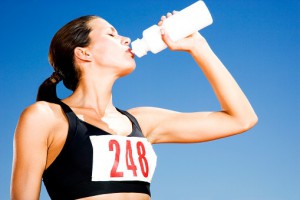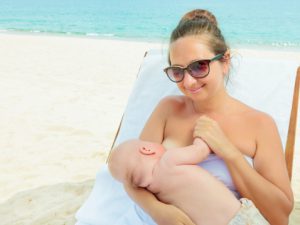Staying hydrated while exercising is very important, especially during the hotter months when we tend to lose more water by sweating. The best way to hydrate our bodies is to drink water, as it helps to prevent dehydration.
While drinking water greatly benefits our bodies, consuming too much can have adverse effects, one of which is hyponatremia. This condition occurs when the blood becomes excessively diluted from drinking too much water, dangerously reducing sodium levels in our bodies. Hyponatremia can result in symptoms such as nausea, fatigue, headaches, and in severe but rare cases, death. It is important to follow proper hydration guidelines to avoid these symptoms.
According to Harvard Health, four to six cups of fluid daily is generally recommended for most people to consume. While exercising, The American Council on Exercise recommends drinking:
- Seventeen to 20 ounces of fluid, 2 to 3 hours before working out
- Another 8 ounces, 20 to 30 minutes before starting your workout
- Seven to 10 ounces, every 10 to 20 minutes while exercising
- Eight ounces post workout
General recommendations are based on weight and gender. They may vary with each individual. It is also important to keep in mind, that individuals with certain health conditions such as kidney or liver disease may retain too much fluid and should consult their physician
If you are uncertain about how much water you should drink per day or while exercising, speak with your doctor. He or she will be able to provide more specific guidelines.
To speak with a doctor at Flushing Hospital Medical Center, please call 718-670-5486
All content of this newsletter is intended for general information purposes only and is not intended or implied to be a substitute for professional medical advice, diagnosis or treatment. Please consult a medical professional before adopting any of the suggestions on this page. You must never disregard professional medical advice or delay seeking medical treatment based upon any content of this newsletter. PROMPTLY CONSULT YOUR PHYSICIAN OR CALL 911 IF YOU BELIEVE YOU HAVE A MEDICAL EMERGENCY.




